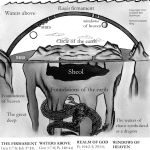I’m frequently baffled when I hear people say both that undocumented immigrants are driving wages down and that amnesty for undocumented workers shouldn’t even be on the table. I’m similarly baffled by those who complain that undocumented immigrants don’t pay taxes, but de facto oppose amnesty.
There appears to be some truth to the claim that undocumented immigrants drive wages down, at least for unskilled laborers. According to the Atlantic:
Immigration isn’t without its negative effects, especially on Americans who lack a high school diploma, according to George Borjas, a professor of economics and social policy at Harvard’s John F. Kennedy School of Government. In a 2013 report published by the immigration-restrictionist Center for Immigration Studies, Borjas calculated that immigrants might have depressed the wages of native-born high school dropouts by 6 percent between 1990 and 2010, mainly due to foreigners who’d arrived illegally.
The mechanism at work here isn’t simply that undocumented immigrants are willing to work for less, it’s also that these workers are not protected by minimum wage laws. Employers can pay undocumented workers lower wages than legally allowed because these individuals do not have the ability to object or take them to court for doing so, because they are undocumented.
There is a quick and simple way to change this—it’s called amnesty.
If workers were documented, employers could not exploit them, and they could organize to demand higher wages. That in turn would drive wages up—both for undocumented workers and for low-skilled native-born workers. Despite this, the people who most frequently accuse undocumented immigrants of driving down wages tend to be those most opposed to granting amnesty.
I’ve also heard complaints that HB1 visas, which allow employers to bring in highly skilled predominantly tech workers from other countries, especially those like India, are driving down wages in the tech industry—but here, too, one solution is to loosen immigration restrictions. If individuals with HB1 visas weren’t bound to a specific employer, they could (and would) leave low-paying employers to go where they get better wages—and that would force low-paying employers to raise their wages.
The same individuals who complain that immigrants drive down wages frequently also complain that undocumented immigrants don’t pay taxes. While undocumented immigrants do pay sales tax, and many pay payroll taxes, amnesty would eliminate any remaining concerns about undocumented immigrants not paying taxes.
All of this is on top of a variety of additional points: low-skilled immigrants typically pursue different kinds of jobs than low-skilled native-born workers; immigrants create jobs; immigrants boost wages overall; immigrants benefit neighborhoods and communities in additional, non-economic ways; and immigrants (both documented and undocumented) reduce crime rates.
Keeping undocumented workers in the shadows benefits wealthy employers who want access to workers they can exploit. Keeping undocumented immigrants in the shadows makes immigrants more vulnerable to exploitation in other ways as well—would you go to the police if a crime was committed against you, if going to the police could get you thrown out of the country? Do you know who keeping these workers undocumented does not benefit? Native-born workers.
Opponents of immigration talk about economics, taxes, and crime, but the data is against them on this. Immigrants create jobs, boost wages, and reduce crime. Concerns about unskilled immigrants lowering wages for native-born unskilled workers and (some) immigrants not paying (some) taxes could be addressed through providing amnesty and a path to citizenship.
Maybe this isn’t actually about economics, taxes, or crime. Maybe it’s actually about race, and talk of economics, taxes, and crime is simply a cover for old-fashioned nativism. Because frankly, that’s what it looks like.















